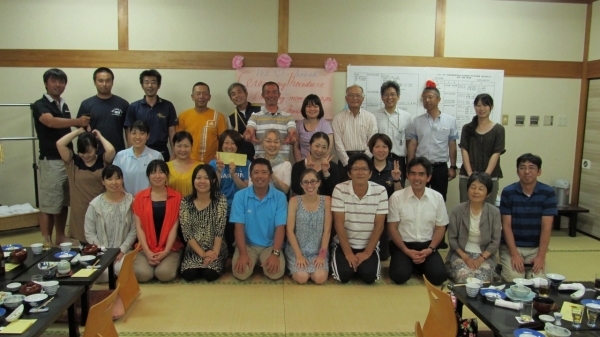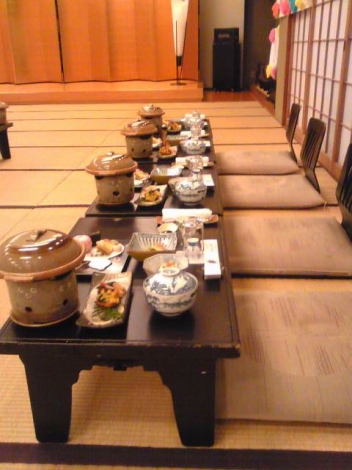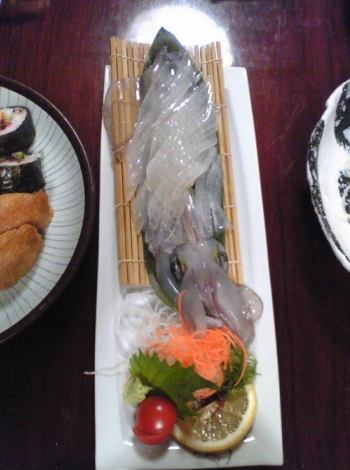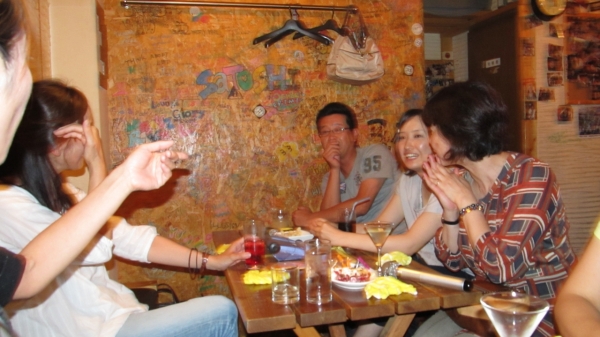Don't miss out on the best jobs!
Subscribe to HelpGoAbroad and weekly we will sent you an email with latest job posts. Provide your email address below
All around Japan, the work culture is a convoluted web of bureaucracy with a set hierarchy of most important person in the room to lowly peon. That said, when your work throws a work party (better known as an enkai), all of that goes out the window. You’ll get to see your coworkers in a whole new light, including your tight-lipped boss and the lady who serves you green tea every morning.
How do I get invited and how much will it cost?
When an enkai is being organized, you can expect an attendance sheet to be sent around your office. You can initial beside your name if you are planning on going and then pay ahead for the night. Keep in mind, though, that it is considered rude not to attend an enkai. While enkai can run quite expensive: anywhere from 4,000 to 10,000 yen (roughly 40-100 US dollars), it is a bonding experience for you and your coworkers that you shouldn’t miss out on. Moreover, the money you spend will give you an enormous spread of traditional foods that you might not eat otherwise in Japan.
How should I dress?
On the night of the enkai, you should arrive on time or early. The Japanese respect punctuality. Your coworkers will most likely be dressed in the same clothes they wore to school and there might even be a sweat suit or two in sight. It’s recommended that you dress business casual to an enkai, unless otherwise stated.
Enkai etiquette:
When you enter the party, it will most likely be a traditional Japanese setting with cushions on the floor and tables low to the floor. It’s customary to sit seiza (or with your legs tucked under you). However, after a drink or two, this custom will devolve into crossed or stretched out legs. The usual policy in Japan is that enkai are well organized and follow a schedule. A co-worker will usually introduce the enkai and share a few words about why you’re all there. Then everyone will be served a drink. Pouring the drinks is an important part of this ritual. Using two hands, it is customary to pour drinks for others, but not yourself. This act of pouring drinks can also help you to get to know your coworkers and make you seem more approachable. However: DO NOT DRINK FROM THIS DRINK UNTIL THE KAMPAI! It’s socially unacceptable to drink from your drink before everyone has cheered to begin the party. Once you’ve all yelled “KAMPAI!” (or the English equivalent of “cheers”), then you will clink glasses with those around you. It is traditional to clink your glass well below the lip of your superior coworker’s glass to show your lower place in the work hierarchy and your respect. Although you can choose to have tea if you don’t want to drink alcohol, the first drink you have will most likely be some sort of shochu, or Japanese rice wine. Even if you aren’t drinking alcohol, it is polite to take a sip or wet your lips with the beverage after the kampai. From then on, however, you may drink only tea, if you wish.
The Food:
Once you’ve completed the cheers, you are welcome to begin eating the delicacies set before you. You will encounter everything from whale in vinegar to sukiyaki (meat and vegetables with raw egg on top: scrumptious!) to squid that is still alive and squirming. There will be three to five courses, ending with seasonal fruit or sorbet as dessert. It’s almost too much to digest! In fact, many times it is far too much food for one person. Although Japanese convention encourages you to finish all the food that has been given to you, at enkai, with all the drinking and relaxed attitudes, it’s easier to wiggle out of this commitment sans guilt.
As a foreigner you might…
As a foreigner working in Japan, you may or may not speak Japanese. Additionally, you will probably look and sound different and so your coworkers may feel shy or unsure of how to approach you. The best thing to do is learn a little Japanese and try to talk with your coworkers using what you know. If you need a little liquid courage, this is the perfect time to use that to your advantage. Don’t be afraid to make a fool of yourself, either—your coworkers want to get to know you and anything you do to make yourself more approachable will be appreciated.
Ending the enkai:
It can be considered impolite to leave an enkai before the highest-ranking person leaves. Therefore, enkai usually last around three hours. You know the enkai is officially over when everyone stands in a circle and some final words are said. Then everyone claps at the same time. Now, you are free to leave, but I recommend heading to the nijikai, or “enkai: round two”.
Nijikai!
By now, your coworkers and you are feeling buzzed and it’s time to continue the party and really let your hair down. The nijikai typically involves nomihodai (all-you-can-drink) karaoke at a nearby bar or club. Of your coworkers who aren’t driving, the drinking reaches a new level of debauchery. Everything from inappropriate questions to vomiting on the side of the street can happen during the nijikai. It’s a time when you and your coworkers can let your freak flags fly and not be judged or held accountable for it the next day.
After the enkai
During an enkai, you might have found out that your coworker is getting a divorce, that another coworker is pregnant (oh, that’s why she was drinking tea), or some other scandalous bit of information. You might have seen your superior drink himself literally stupid or the nice woman who serves your tea demurely every morning sing her heart out to Celine Dion. But come Monday morning, none of that should be discussed. The number one rule of enkai is: “What happens at enkai, stays at enkai”.
Enkai are special experiences that can seem unique to Japan for foreigners who go to work there. They are great opportunities to relax and really get to know your coworkers as people. These parties are events that should be taken advantage of and attended at every chance. Not to mention, they are fun rewards for the demanding Japanese work environment. Japan is a country that works hard and plays hard!
Sign in to publish a comment




Be the first to comment on this post.